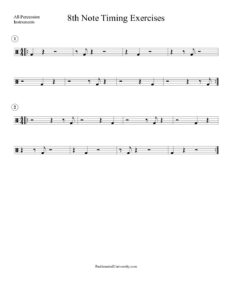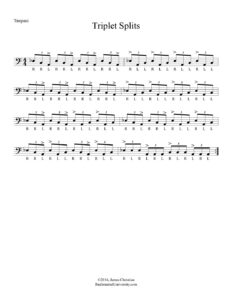Greetings! My name is James Christian, and I am the founder of Rudimental University. I am a percussionist, teacher, and author, and my specialty is rudimental drumming. I am best known for being the seven-time DCA multi-tenor drum champion (2001-2007). However, I do not consider myself as merely a “tenor drummer.” I am a drummer and a percussionist, and I love every aspect of percussion. I hope this site will provide valuable resources and inspiration for both percussionists and percussion instructors.
The site’s name, Rudimental University, has its origins in rudimental drumming, but I intentionally did not name it Rudimental Drumming University. All percussion instruments have essential rudiments that must be learned, and they can all be taken to extremely advanced levels. This site is a celebration of the rudiments of all percussion. I chose to call it a “university,” because I want this to be a place of learning, sharing knowledge, and being exposed to new ideas. I plan to bring along other percussionists who will offer different perspectives—including those who may disagree with me on certain issues.
I have big plans for Rudimental University, which I will reveal over the weeks, months, and years to come. Go ahead and bookmark the site, and check back over time as new features are added. I hope you will join me on a new percussion adventure!




